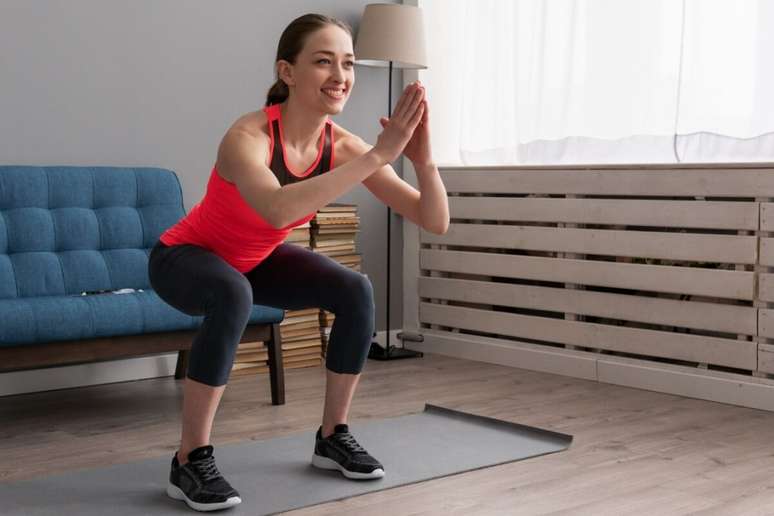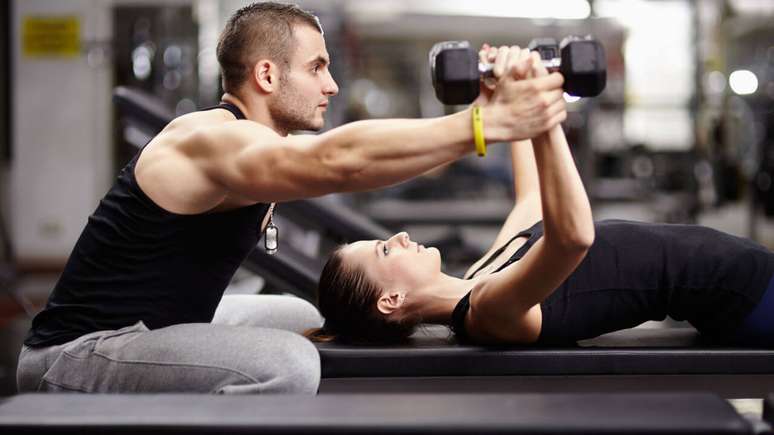Practice can help reduce stress, improve mood and increase the arrangement
With a routine time and scarce increasingly agitated for travel, physical activity practices at home have gained space, in particular those that do not require sophisticated devices or large spaces. Among these, functional training is distinguished by its versatility and ability to adapt to the needs of each person, being a practicable alternative even for those who have never participated in a gym.
This mode works natural movements of the body, such as squat, push, shooting, running and jumping, using body weight or equipment as ropes, spheres, cones and elastic bands. The practice tries to develop strength, balance, flexibility, motor coordination and resistance, be suitable for different ages and levels of air conditioning.
Advantages of functional training for mental health
According to the coordinator of the Psychology Course at the Anhanguera Tabão da Serra College, Elisângela Ribeiro, regular practice of functional training can have a significant impact on mental health, contributing to Stress reductionimprovement of mood and greater arrangement.
These benefits are associated with the release of various substances, such as endorphins, dopamine, serotonin and noreprenaline, neurotransmitters that act directly on the promotion of the feeling of well -being, motivation and emotional balance.
“Functional exercises include various movements that stimulate the body globally, which help to fight monotonous routine and negative thoughts. Furthermore, these workouts can be made in comfortable and safe environments, such as home, which is a great advantage for those who have a close agenda or do not feel comfortable in traditional academies”, he explains.
Practice affects emotional well -being
According to Elisângela Ribeiro, functional training benefits For self -esteem, especially if practiced regularly. “[…] These workouts contribute to increasing self -esteem since the practitioner perceives evolution in suitability and achieves its objectives “, he says.
In addition, the teacher underlines that the positive effects of the practice go further, reaching aspects such as sleep quality. “Exercise also stimulates the release of endorphins, substances that act as natural pain relievers of the body and help to improve mood, reduce pain and increase the arrangement; [e também] It contributes to a better sleep quality, essential for physical and emotional recovery. With more energy and well -being, it is easier to face the routine with lightness and balance, “he explains.

How to start functional training at home?
Maria Paula Barros, coordinator of the Anhanguera College physical education course, suggests starting with simple and progressive training, respecting the boundaries of the body and avoiding overload. Movements such as squats, flexions, tables and heels can be made without equipment or use simple objects such as chairs or bottles of water. The important thing is to maintain the regularity and correct intensity at the level of physical conditioning of each person.
“Functional training at home is extremely flexible. The goal is to improve the functionality of the body on a daily basis and not necessarily reaching an idealized body. This is very important for mental health, since it eliminates the pressure for immediate results and promotes the pleasure of exercise,” he explains.
However, you have to do some care. “Rewarding the guide of a physical education professional is essential to ensure that training is suitable for the needs and limits of the body, preventing injuries and making the most of the benefits of the activity,” says Elisângela Ribeiro.
Maintain an efficient functional routine
To make the most of the advantages of functional training at home, Maria Paula Barros recommends:
- Book a fixed program on the training program, just like you would do with any other important commitment;
- Increase the intensity of training gradually a Avoid injuries and keep the body motivated;
- Vary exercises to avoid boredom and stimulate the different body muscles, providing a more complete training
- By combining the exercise with a balanced diet to improve results and maintain mental health in balance.
“Regular exercise is one of the pillars to maintain good mental health. Functional training is a simple, effective and fun way to take care of the body and mind, without leaving the home”, concludes the teacher.
By Bianca Lodi Rieg
Source: Terra
Ben Stock is a lifestyle journalist and author at Gossipify. He writes about topics such as health, wellness, travel, food and home decor. He provides practical advice and inspiration to improve well-being, keeps readers up to date with latest lifestyle news and trends, known for his engaging writing style, in-depth analysis and unique perspectives.









